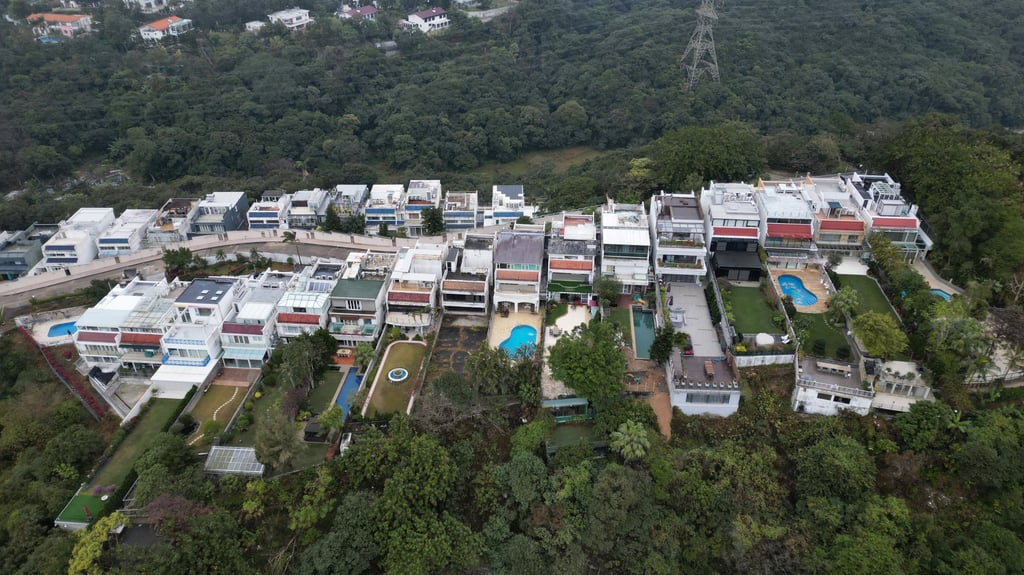Exclusive | Exposing Hong Kong’s invisible land grab: why homeowners have few qualms breaking rules to build add-ons to luxury homes
- In upscale communities and largely out of the public eye, mansion owners are suspected of adding millions of dollars in value to their homes with unauthorised structures
- Lax enforcement, anaemic fines and tremendous financial rewards for rule-breakers have allowed the problem to fester, but experts say there is much the government can do

Fei Wan Road, or Flying Cloud Street in Chinese, is a cul-de-sac nestling between Fei Ngo Shan and Clear Water Bay roads on the way to Kowloon Peak. Here, the roads live up to their names, offering breathtakingly unobstructed views of urban Hong Kong and the misty blue sea.
In the evenings, residents and helpers walk their dogs along the short street in the quiet neighbourhood of Flamingo Garden boasting rows of tidy white houses on either side, each costing as much as HK$71.8 million (US$9.18 million).
Until late last year, most of these houses hid a secret. Beyond the facade, homeowners had built what appeared to be unauthorised extensions on government-owned land.
Unauthorised structures are considered works that have been carried out without prior approval or consent from the Buildings Department. Examples include constructing a new extension to an existing building and adding rooftop structures.

A Post investigation found these structures were made without formal approval from authorities. Suspected unauthorised structures were seen in most of the 16 houses in Block B of Flamingo Garden.
Up to 12 out of 16 houses, each with a floor area of 2,496 sq ft, were found to have encroached on public land. Among them, unauthorised structures of indeterminate size were seen outside the boundaries of 11 houses, the Post found.
